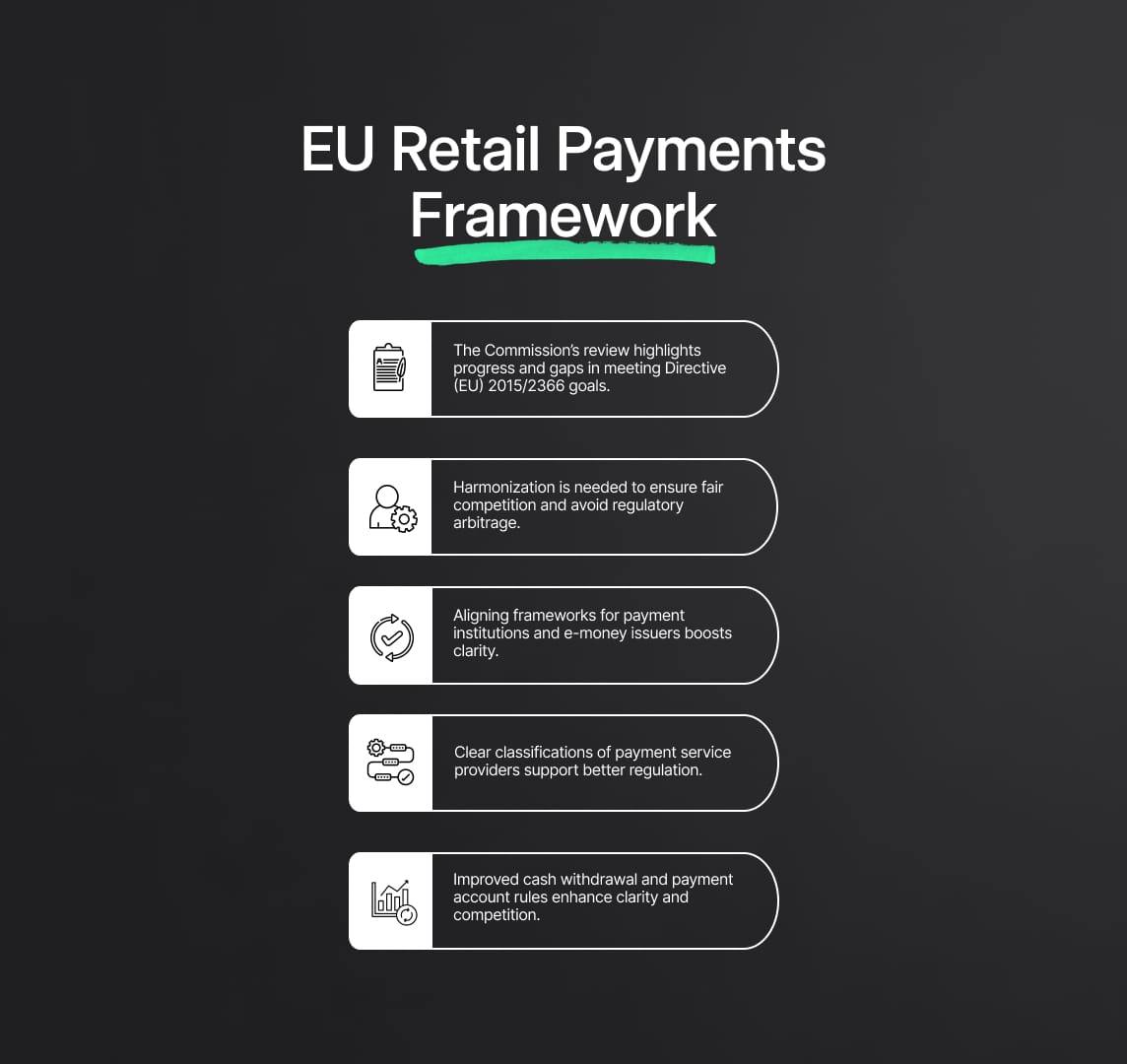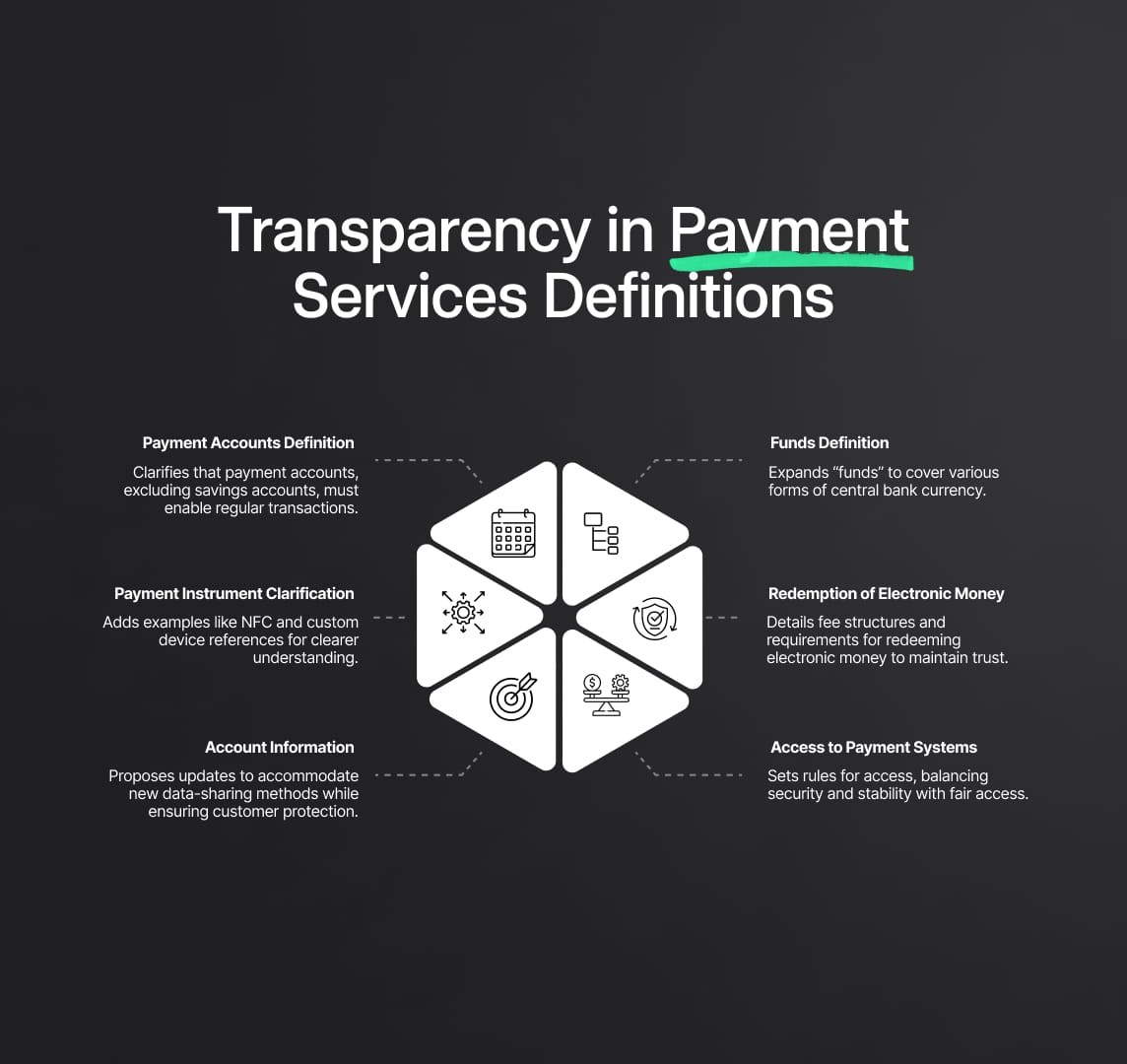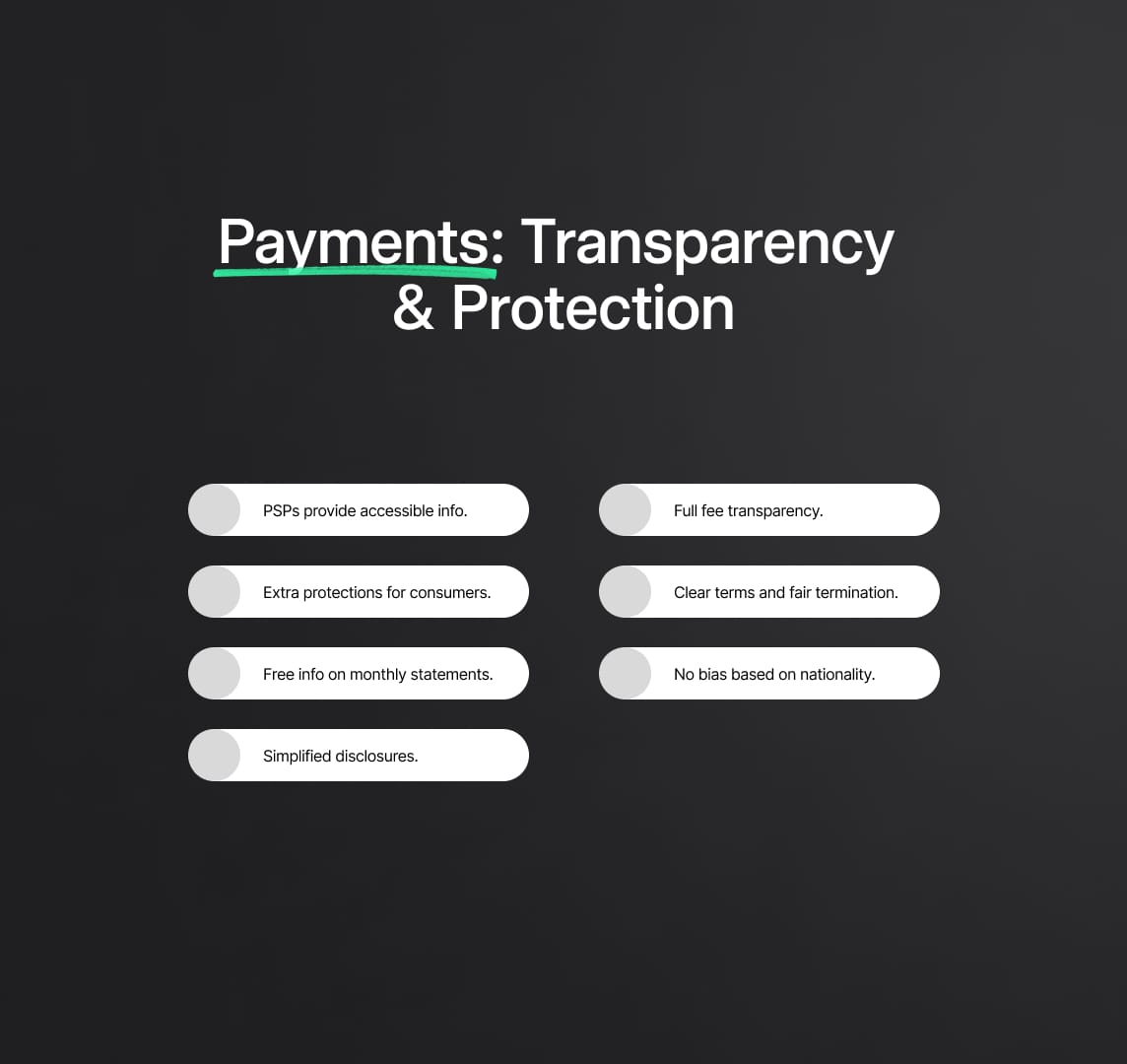Payment Services Regulation: Legislative Update
The Parliament has adopted its negotiating positions on the EU's payment services framework. The package aims to harmonise regulations, enhance user data protection, and combat fraud. Trilogue negotiations are expected to begin after the summer recess, with final adoption anticipated in early 2025.

This update pertains to the European Parliament's final position on a legislative package that aims to modify the payment services framework inside the EU. A proposed Payment Services Regulation and a Directive modifying the Second Payment Services Directive (PSD2) are included in this bundle. The objective is to fortify safeguards against fraud and the improper use of user data while improving the regulation of payment and electronic money services throughout the EU.
In order to create a cohesive position on the payment services package, the Parliament is currently waiting for the Council to approve its negotiating position before engaging in trilogue talks with other parliamentarians. Prior to the completion of its mandate, the Belgian chair of the Council seeks to establish a bargaining position among its member states. Trilogue talks are likely to start after the summer break, with a compromise expected in Q4 2024. It's unlikely that final adoption will occur before early 2025.
Source
[1]


EU Retail Payments Framework
The retail payments business was revolutionized by Directive (EU) 2015/2366, which adjusted to digital trends. The objective of the Commission's evaluation is to guarantee its sustained efficacy and relevance.
Keypoints:
- The Commission's assessment identifies areas of accomplishment and inadequacy in relation to the goals of Directive (EU) 2015/2366.
- In order to maintain fair competition and stop regulatory arbitrage, harmonization is necessary.
- For clarity, it is suggested that the frameworks for payment institutions and electronic money be aligned.
- Effective regulation and management of payment service providers require a clear classification of these entities.
- Clarity and competition are increased when cash withdrawal and payment account
Explaining Clarity and Scope in Retail Payment Regulations
This section explores the changes that have been suggested for Directive (EU) 2015/2366, with the goal of improving its definitions and application in light of changing market conditions. It covers a number of topics, such as simplifying regulation by replacing some ATM operator categories, enabling cash access by allowing businesses to provide cash provision services, and standardizing definitions of commercial agents.
To ensure uniformity among Member States, it also explains exclusions pertaining to restricted network transactions and special-purpose instruments. The article also describes the distinction between technical services and payment services, as well as exclusions for payments made through telecommunications devices and in group projects. It also talks about how definitions should be modified to account for shifting market dynamics and maintain technology neutrality. Lastly, it highlights how crucial it is to make payment transaction execution processes clear to enhance transparency and strengthen customer authentication.

Transparency in Payment Services Definitions
Refinement and clarification of definitions within Directive (EU) 2015/2366 are urgently needed, given the complexity and growth of the financial services sector. The main suggestions to resolve ambiguity and bring definitions into line with market realities are outlined in this section:
- Definition of Payment Accounts: The definition of payment accounts, which does not include savings accounts, places special emphasis on the need to enable regular payment transactions in order to classify an account as a payment account.
- Payment Instrument Clarification: Offers illustrations to help explain the idea, such as taking into account the capability of Near-Field Communication (NFC) and customized device references.
- Evolution of Account Information Services: Recognizes how account information services have changed over time and suggests modifications to allow for new forms of data sharing while maintaining customer protection.
- Money Remittance and Fund Definitions: This section explains what is meant by "funds" and broadens its definition to include a variety of central bank currency.
- Redemption of Electronic Money: Describes fee schedules and requirements for electronic money redemption in order to preserve holder confidence.
- Access to Payment Systems: Establishes rules for payment service providers' access to payment systems, guaranteeing their integrity and stability while reducing potential hazards.
Ensuring Access and Fair Competition in Payment Systems
Front-end payment service providers must make sure that they have access to critical technologies such as Near-Field Communication (NFC) in the context of digital payments. The need of granting equitable access to NFC antennae and secure components in mobile devices is emphasized in this article for original equipment makers and electronic communications service providers. It also highlights the significance of clear, nondiscriminatory guidelines for payment system access, which central banks monitor to guarantee adherence to.
Moreover, it emphasizes the necessity of fair competition, requiring payment system members to impartially grant access to authorized payment service providers. The document also discusses how competition laws still apply to closed payment systems run by a single provider, even if they are not covered by access provisions. Finally, it emphasizes how important it is for credit institutions to give payment institutions payment accounts, guaranteeing access unless there is a significant danger or criminal activity, and including appeal procedures in the event that a rejection occurs.

Transparency and Consumer Protection in Payment Services
In order to empower payment service customers to make informed decisions when choosing a payment service provider inside the EU, this section highlights the significance of giving them access to clear and comparable information. It emphasizes the necessity for payment service providers to give thorough and easily obtainable information on payment services, considering user needs and guaranteeing transparency with regard to terms of service and costs:
- Information Provision: With regard to payment service contracts and transactions, payment service providers must give consumers the relevant, adequate, and understandable information. This entails actively disseminating information or making it available upon request from users, guaranteeing information availability and accessibility.
- Differentiation Based on User Status: Consumer and non-consumer users are distinguished, and consumers are given access to additional protective mechanisms. Microbusinesses and consumers may be treated equally, with some guidelines that apply to all users.
- Transparency and Consumer Rights: Prior to signing any payment service contract, customers are entitled to free information about the terms of service and rates. Payment service providers ought to give monthly transaction statements and supply basic transaction information at no additional cost.
- Simplified Information for Low-Value Payments: Taking into account the technical capabilities expected from such instruments and guaranteeing sufficient user protection, information requirements for low-value payment instruments should be restricted to the most important details.
- Comparison of ATM Fees: To make it easier for users to compare, payment service providers must openly show all fees that apply to ATM withdrawals, including fixed fees and currency exchange rates.
- Framework Contracts: All previous information on framework contracts must be provided, and any further transaction information must be given on paper or in a durable manner. Except in situations when an early termination occurs soon after the contract's beginning, users should be able to end framework contracts without being charged.
- Mobility and Consumer Protection: Clauses in contracts shouldn't treat customers differently because of their nationality or location of residence. Contract termination should be free for users and have termination fees commensurate with actual expenses. Technical services shouldn't be subject to more restrictive conditions from payment service providers than payment services.
In the context of the EU's payment services market, these regulations seek to protect consumer rights, advance transparency, and arm consumers of payment services with thorough information.
Reduce your
compliance risks


